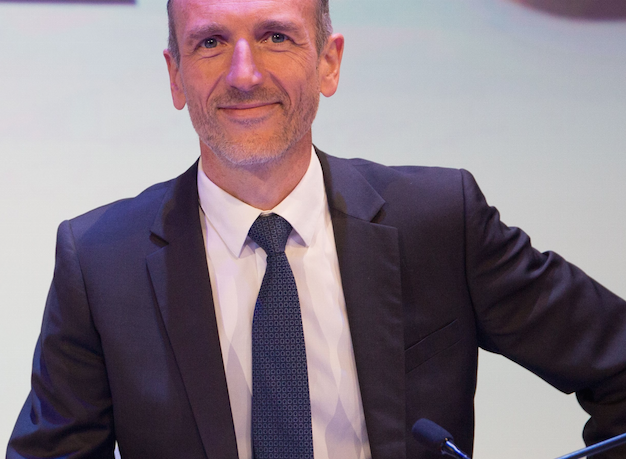The team behind our partner podcast Global GoalsCast have been busy. They have joined forces with the Global Impact Club and are hosting democratised debates once a week on the hot new platform Clubhouse.
The details about how you tune in are here.
For the episode last Friday a series of guests including Gillian Tett, creator and editor of the FT’s Moral Money, discussed the future of stakeholder capitalism.
The session was inspired by the manner in which Emmanuel Faber, a champion of purpose and profit, was ousted from his post of CEO at Danone.
So what does his removal mean for the sustainability movement generally and Danone in particular? Gillian has some fascinating and occasionally strident views.
1 Emmanuel Faber’s removal may be a sign that the purpose movement is growing up.
“We’ve gone through the first phase where people said what is ESG (Environmental Social and Governance) – why bother?” said Gillian “Some of the early pioneers grabbed this label, used it and waved it about, and there wasn’t a lot of scrutiny about whether it actually stacked up, and what it meant and how to actually implement it.
And we’re now moving into a world where in fact ESG is becoming so mainstream, that it’s being put through the mainstream lens of good and bad.
There were so many aspects of things that Faber did that was admirable. But It does seem that there were questions raised about the G (governance) aspect of ESG, which frankly has had far less attention than the E, environmental and the S, the social aspects of ESG, up until now. What’s really interesting about the whole Danone battle is that it is essentially about two groups of activists in battle with each other. You had the activists who were the classic sort of barbarians at the gate activists that we like to imagine who were very much operating within the Milton Friedman framework and wanted profit.
And then these other ESG activists who were very much supporting Faber.
It’s not a happy story in some respects for the sustainability movement, because certainly there are people saying, ‘sustainability has been used as an excuse for less than dazzling governance or management.’
But what it has done is create more maturity around the discussion of what is or is not possible with sustainability and shown it is not a magic wand that you can just wave blindly and hope to get you out of all corporate challenges.”
2 Purpose Leaders are no different than others: you have to take the whole company with you
“We’ve seen indications that he hadn’t got wider backing of the Danone management, and that there were personality clashes. Now, that happens in many companies and we should recognise that CEOs of all stripes get ousted for this. One of the things that made the situation particularly challenging was the fact that the company didn’t have what many other consumer goods companies have – is a cleaning household good products department, which boomed during the pandemic.
So many of its rivals looked a lot better just by virtue of the fact they had other products which were doing well in the pandemic. But I think the question about Danone – and other CEOs – who over the last year or two have embraced sustainability mantras and goals is whether they are doing enough to bring along the rest of their corporate boards and or their management with them.
There’s a well-known sceptic of ESG and sustainability at Harvard called Lucian Bebchuk who did a study after the Business Roundtable letter came out which found that only two of the CEOs who signed this letter had consulted with their corporate boards. That might imply that what they were doing was cosmetic, it might imply that they already knew everyone would back sustainability, or it might imply that there’s a danger that (going back to the G issue) that pioneering visionary CEOs grasp onto sustainability ideals, but don’t definitely get the wider corporate support or even spend the time explaining to the wider company, what it means to practice them.
3 How we measure corporate success is changing.
Many of the resources and skills we need to build back while the pandemic continues are in the hands of the modern invention, the Multinational Corporation. The biggest corporations are far more powerful than most sovereign companies. And the world is beginning to see them as important to hold to account – but how we do that, and how we measure their impact is still being defined. Old metrics built around the Milton Friedman-esque notion of profitability linger on, but it is clear that in the 21st century they need augmentation.
“The reality is that we’re at a very interesting flux point in the markets where it’s become clear that the old metrics that people were using in the few decades after Milton Friedman, which are very narrowly bounded visions of the corporate balance sheet, and profit and loss statements. Those tunnel vision metrics are increasingly no longer acceptable to shareholders, alone or stakeholders alone.
People are looking for a wider lateral vision of what the company is doing. But we haven’t yet clearly defined exactly what that lateral vision that wider perspective should actually be.”
You can read the full article on Edie Lush’s blog here.




